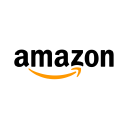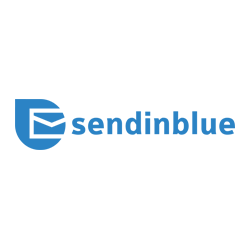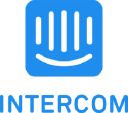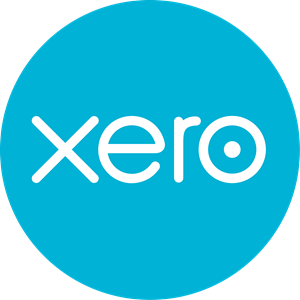
Our Unique Pricing Model Got Us To $40K/Month As An Educational Business
Hello! Who are you and what business did you start?
Hey 👋 I’m Ajay Prakash, the founder of EntryLevel.
EntryLevel helps you learn and get project experience so you can land a tech job.
We started back in 2021 with the mission to make tech education more accessible. We run cohort-based programs, which ended up being a hit in Nigeria, Kenya, Ghana, and India. We’re also operating in Australia, the US, Canada, and more.
Now, you might be thinking “Great, another online course. I can get the same thing on YouTube for free.”
But that’s where EntryLevel’s magic is. You can’t get the same experience on YouTube, Coursera, or any other online learning platform - because it’s too scattered and overwhelming. “I was all over the place,” one learner told us. “EntryLevel was one of the best decisions I made because it helps me focus.”

Here’s how we do that in just 6 weeks:
- Lessons unlock over time, encouraging students’ natural curiosity to keep learning
- An active community allows students to network and make connections that last outside the classroom
- The AI teaching assistant provides instantaneous feedback - and even quizzes students on their learning

Students also get to practice their soft skills by giving and receiving feedback from their peers. As one student put it, “I’d rather get roasted in my EntryLevel course than by a potential employer.” They explained how EntryLevel was a safe space for them to make mistakes and learn from them, feeling more confident and prepared for their career.
And the most compelling “magic” of EntryLevel? Our unique pricing model. We had one of our TikTok videos banned because it seemed too good to be true.
We give students a 100% refund if they complete a course.

That way, education is accessible for those who really can’t afford it. But for those who can, they let us keep their money in exchange for premium perks like permanent access to course content.
I see it as a challenge: we have 6 weeks to get our students to fall in love with us. Most of the time, we succeed.
Right now, we’re making $40,000 per month and have trained almost 30,000 people since our inception.

(If you’re completely sold on the magic of EntryLevel already, you’ll LOVE our Growth Marketing course. The marketing course teaches you how to grow your business - from Pirate Metrics to A/B testing. Use code STARTERSTORY at EntryLevel for 10% off!)
What's your backstory and how did you come up with the idea?
I was always passionate about education. It sounds cliché but it’s true - and probably the reason why many founders are advised to pursue a problem space they’re passionate about.
I studied engineering and physics, and somehow still had the time to start a non-profit called Real Skills. My goal was to help engineers secure employment after graduation. Real Skills helped nearly 10,000 students.
After that, I dabbled in various sectors, including e-commerce, crypto, international trade, and deep tech, founding a few different companies along the way. Though not all of them turned out to be successful, each venture was a learning opportunity that shaped my entrepreneurial journey.

Throughout this period, teaching and running workshops remained a consistent passion - something I gravitated towards in my spare time.
Then COVID happened.
I lost my job.
Rather than despair, I saw it as an opportunity for a well-deserved break and a chance to plan my next venture.
One of the major sources of inspiration for EntryLevel came from the World Economic Forum's audacious goal to reskill 1 billion people by 2030. This bold initiative struck a chord with me, igniting my passion for education and a desire to make a substantial impact.
The thought of empowering a billion individuals with new skills and opportunities was irresistible, and it felt like the right challenge for me.
That’s why - to this day - EntryLevel’s North Star is to reskill 1 billion people by 2030. It’s guided us since day 1 and has never changed.
You should ICE score the opportunity beforehand from 1 to 10: Impact (how big is the market, how many customers are there, how willing are they to pay, etc), Confidence (how well could you personally execute this), and Ease (how easily do you think you could get this to $1M a year or some other metric).
It was this time when I decided to return to the education space, this time with a focus on high-volume, low-cost reskilling. Thanks to Blackbird VC, who believed in my vision, I was able to secure funding for my ambitious project. Despite knowing the journey would initially involve a period of low revenue because of the model I wanted to pursue, I was more than willing to take the plunge.
Take us through the process of building the first version of your product.
As every founder quickly learns, you have to balance quality and scope. That’s why Minimum Viable Products (MVPs) exist - you have limited resources to build your solution.
It was no different for EntryLevel. The first phase was building the referral waiting list system which helped us get viral growth at the beginning (more on that later - keep reading!).
We built the site on Webflow and had a custom Firebase referral script for our user base. While off-the-shelf referral tools were readily available, they fell short in terms of UI. And, being a stickler for design, I wanted our platform to not just work efficiently, but also look inviting and engaging.

For our Learning Management System (LMS) - or at least a very MVP version of it - we used a combination of Notion and Super.so, coupled with Discord for fostering a community among our learners.
This system proved sufficient for our initial cohorts, but it was far from automated. Every email prompt had to be sent out manually. To help build the initial educational experience, we engaged 3-4 instructors who co-created the course materials with us.
The feedback was good but we had about 10-15% completion rates and a lot of people dropped out in the very first stage. It was hard to build stickiness when it was a free program. Those that finished, loved the program experience and the community.
While this approach was labor-intensive, it was crucial for maintaining the quality of education we aimed to deliver.
Describe the process of launching the business.
We kicked off with a waitlist website featuring a referral system. I promoted the platform vigorously, posting everywhere I could until our referral system started to gain traction.
The content strategy was a mix of informative articles such as “How to get an internship in 2021” or sharing my personal story and this program I was building. The less I was representing a company and the more human-centric it was, the better we did. There’s a detailed write-up on our first 7000 sign-ups here.
Within the first two months, we had secured 30,000 sign-ups. Our goal was to test the waters with cohorts of one to two thousand students, minimal staff, and high completion rates.
30,000 sign-ups was more than our wildest expectations. Looking back, I think our success was largely in part timing, luck, and the right incentive model/product.
Financing the business in these initial stages was straightforward. Our costs were relatively low, consisting primarily of modest salaries for myself and three other team members. The next step was creating the cohort experience. We set up a password-protected website using Super.so and Notion, and a Discord community for interaction.
The first cohort wasn't outstanding, but it was a start. By the second and third cohorts, we found our rhythm. A few months later, we experimented with the "Pay What You Want" model, which wasn't as successful as we had hoped. We also tried the "Free if You Finish" model, which resonated with our learners.
At the time of the launch, we hadn't quite figured out our upselling strategy. But as we continued to progress and understand our users better, we were able to craft compelling upsells. This allowed us to encourage learners to let us keep their tuition fees after they had completed the cohort. The model worked better than we had anticipated, becoming a key part of our offering and revenue model.
The upsells we offered were job kits, additional content, and premium certificates, which were just nicer looking than the plain free certificates. People spent 6 weeks of their hard work and time, so they usually want a nicer commemorative certificate than our standard one.
EntryLevel from inception has been a series of A/B tests, helping us slowly and surely improve the product and model.
Since launch, what has worked to attract and retain customers?
Right now, Nigeria, Australia, the USA, and the Philippines are our primary countries, though we’re growing every day. Last month, we had our first student from Jamaica!
After our initial spike in the referral traffic, we focused on paid social media ads (primarily Facebook and Instagram) that still make up our core acquisition channels today. I had to learn the hard way (from my newer team members) that 5-10 years ago, one had to focus on targeting different audiences to find out which ones worked best for your messaging and product. So far, the message that’s worked for us is “learn in 6 weeks.”
In the past, we thought SMS was a channel that would be huge for us. We paid to be promoted to thousands of SMS users in India, only to have a very low number of signups. “Clever” ads also didn’t do as well as clear ones.
For example, we ran ads on a data analyst-related website. The ad that got the most clicks was “Become a data analyst” with a picture of the instructor’s face.

But ads can still be clever. This Facebook ad had lots of users commenting “I’m the T - tired.”

Taking all these learnings, our focus now is on creatives and testing as many as you can quickly because the algorithm is far better than targeting the right people. Now we have way more designers in our growth team than anything else.
Word of mouth and referrals are starting to make a big comeback for us with 10-20% of sales now coming from word of mouth (potentially more).
At the moment, we’re investing more in SEO, SEM, influencer marketing, and other acquisition channels to diversify our channels a little more. We’re already seeing some early traction with SEO. Earlier this year (Feb 2023), we started exploring Programmatic SEO. Our head term to validate was “Best Venture Capital Analyst online courses (with certificates)”. This article ended up leading to 6 conversions, so now we’re going to create similar articles for all our courses.

There’s a lot more experimentation we do - here’s an article with more details.
How are you doing today and what does the future look like?
We aren’t profitable yet, but we’re on our way to it.
Our average customer value is ~$35 and our margins are about 30-40% now including advertising costs, and 90%+ if you’re thinking about pure operating margins. We get 1,000 to 3,000 students per month and 50%+ of our revenue comes from emerging markets such as Nigeria, Kenya, and Ghana.
We do Purchasing Power Parity (PPP) to make education more accessible in these countries. It’s hard to estimate YoY growth as this is technically our second year of operations with revenue. However, we should be on track to 100%+ growth this year.
To support all our students, we recently implemented an AI teaching assistant chatbot. It quizzes students to ensure they understand the course material. The worst (or best?) part is that our developer named it after me as a joke, and it just stuck.


Our mission is to reskill 1 billion people by 2030. That’s why we don’t just look at the number of enrollments - we also want to increase completion rates.
Traditional online learning platforms get 1-5% completion rates, while our last cohort at EntryLevel achieved 40%. Our annualized completion rate for 2022 was ~32%.
This makes me confident we’re on the right track to helping people not just learn - but also apply what they learn.

In regards to operations, we have 12 people and are hiring so we will be at 15 in the next few months. The team is remote in Nigeria, Asia, Canada, and Australia. Most of the team will be customer support/community staff with the rest being in program development, operations, growth, and product development.
Being able to leverage outsourced talent and other people instead of spending your valuable time on low-level tasks is a good skill to acquire early.

The next steps for us are to fix up our operations, reduce the support backlog, and improve the product so we can increase our throughput. Whilst we could push growth harder now, we’re focusing on the quality of our product before doing so.
The future for us involves scaling to Latin America and certain parts of Southeast Asia.
Through starting the business, have you learned anything particularly helpful or advantageous?
There is so much I have learned through this experience:
- Hire A+ talent: investing money into hiring talented people is important, especially in the early stage - you’ll want senior talent. Hiring 3 juniors instead of 1 senior to save money can be a mistake, especially when you’re managing 5-6 people. This adds management overhead because it’s stressful and difficult when everyone reports to you - and you end up wasting more time than you save.
- Focus on getting one thing right: I definitely tried to expand too quickly or introduce new product lines earlier when I should have focused on building out the core product and growing them significantly.
- Be very aggressive in testing creatives as you scale: I made the mistake of not being aggressive enough in testing creatives for my ad channels when I should have been testing 50-100 creatives per month.
- Get good at leverage: being able to leverage outsourced talent and other people instead of spending your valuable time on low-level tasks is a good skill to acquire early. Delegation is difficult, so mastering it early will be important.
What platform/tools do you use for your business?
My favorite tools are:
- Mixpanel / Tableau: for data visualization and being able to see everything in one place
- ChatGPT: we use it all the time for writing copy and other things
- Midjourney: AI image creation, it’s become a part of my weekly stack
- Akiflow: a game changer for our task management, most of our team uses it. It’s a common phrase to say “I’ve added to my Aki”
- Yet Another Mail Merge: an amazing tool for sending mass emails from your inbox so it doesn’t look like a newsletter
- Canva: I use this every day to make graphics, I’d like to think I’m a Canva power user
- Figma: my designers give me Figma files and it’s easy to transfer to my web builder. Design isn’t my forte but I can implement it well - so I want to spend money on design
- Webflow: my go-to website builder, It’s the best builder to make aesthetically pleasing websites
- Zapier: you can make some advanced automation with Zapier and I wouldn’t dismiss it
What have been the most influential books, podcasts, or other resources?
My top book recommendations are Range by David Epstein, Quiet Leadership by David Rock, and Sell Like Crazy by Sabri Suby.
They all had profound impacts on my life in different ways.
Range taught me about being a generalist.
Quiet Leadership helped me interact with and lead people.
Sell Like Crazy taught me to “sell like crazy”.
I’m also a huge fan of the podcasts My First Million, Huberman Lab, and Marketing Against the Grain which are just really good brain fuel.
Advice for other entrepreneurs who want to get started or are just starting out?
I think there are two big things a lot of entrepreneurs get too hung up on.
Firstly, they focus on “mid” opportunities where it’s just an okay value proposition, product, or market. OR they try to rationalize their product market fit when it isn’t clear. We had so many products that made a $500 MRR or $5k in sales but it didn’t make a material difference nor did we see a path for that multiplying into several times more.
You should ICE score the opportunity beforehand from 1 to 10: Impact (how big is the market, how many customers are there, how willing are they to pay, etc), Confidence (how well could you personally execute on this), and Ease (how easily do you think you could get this to $1M a year or some other metric).
(If you want to learn more about ICE scoring opportunities, check out our Growth Marketing program. You’ll learn how to conduct a growth experiment - something one of our students said helped them “identify opportunities [they were] missing and how to go about changing them.” Use code STARTERSTORY at EntryLevel.net for 10% off!)

The second is spending too much time planning and thinking about the next steps. Finding mentors, researching, and other tasks can sometimes just be another form of procrastination. Just get moving and start selling. If you’re making all these excuses as to why your product takes too long to build or something else - just think about what is the smallest increment of value you can provide for some money then make it happen. Stop overcomplicating and overthinking it.
Are you looking to hire for certain positions right now?
We’re always looking for instructors to join our platform and teach with us. Get in touch via our socials or support if you’re interested. We pay fixed contracts or a % of revenue if you’re interested in working with us!
Where can we go to learn more?
If you have any questions or comments, drop a comment below!

Download the report and join our email newsletter packed with business ideas and money-making opportunities, backed by real-life case studies.

Download the report and join our email newsletter packed with business ideas and money-making opportunities, backed by real-life case studies.

Download the report and join our email newsletter packed with business ideas and money-making opportunities, backed by real-life case studies.

Download the report and join our email newsletter packed with business ideas and money-making opportunities, backed by real-life case studies.

Download the report and join our email newsletter packed with business ideas and money-making opportunities, backed by real-life case studies.

Download the report and join our email newsletter packed with business ideas and money-making opportunities, backed by real-life case studies.

Download the report and join our email newsletter packed with business ideas and money-making opportunities, backed by real-life case studies.

Download the report and join our email newsletter packed with business ideas and money-making opportunities, backed by real-life case studies.









































